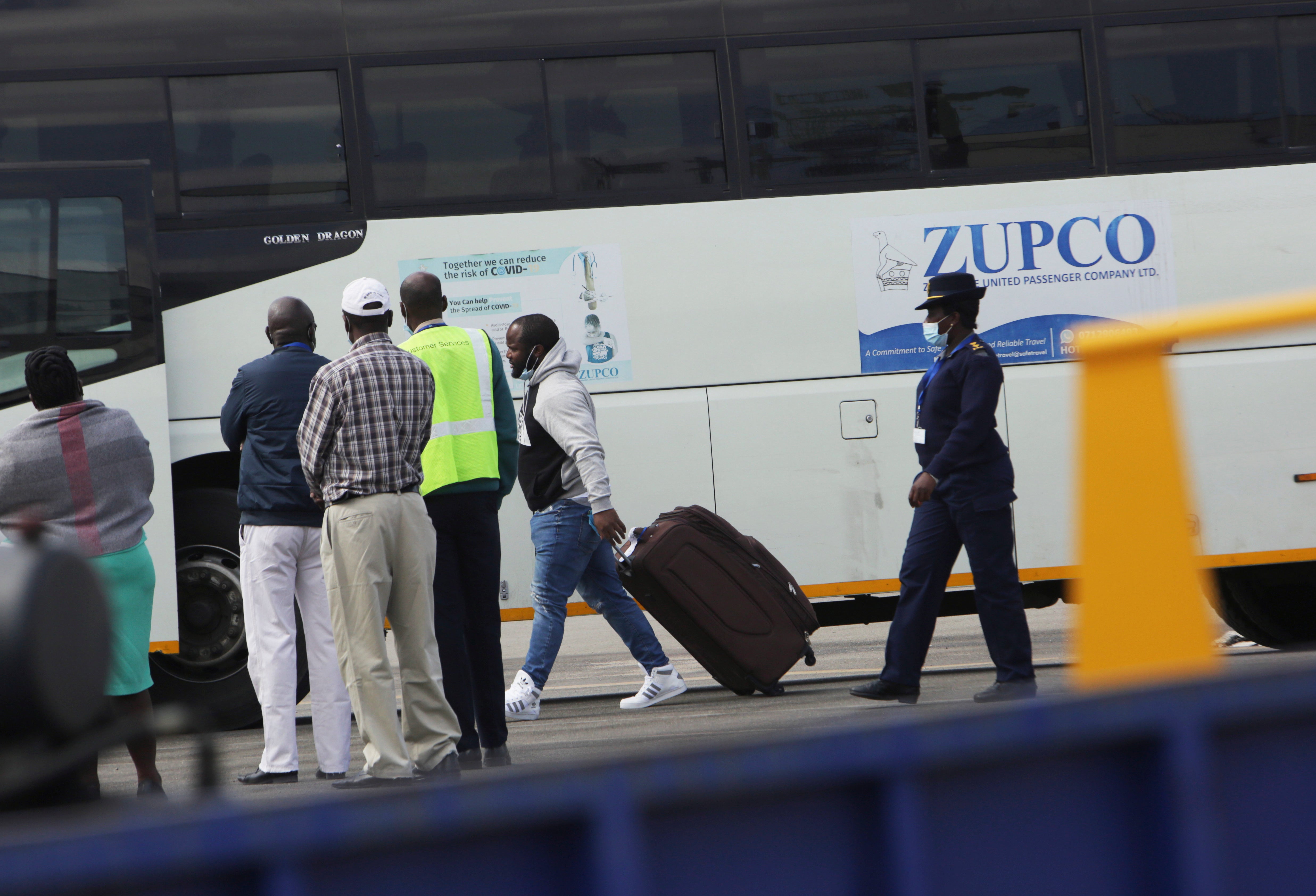Zimbabweans deported by Britain arrive at Harare airport
Zimbabwe has received the first batch of dozens of its citizens being deported from Britain, some after staying in that country for decades and forced to leave families behind to face an uncertain future back home

Your support helps us to tell the story
From reproductive rights to climate change to Big Tech, The Independent is on the ground when the story is developing. Whether it's investigating the financials of Elon Musk's pro-Trump PAC or producing our latest documentary, 'The A Word', which shines a light on the American women fighting for reproductive rights, we know how important it is to parse out the facts from the messaging.
At such a critical moment in US history, we need reporters on the ground. Your donation allows us to keep sending journalists to speak to both sides of the story.
The Independent is trusted by Americans across the entire political spectrum. And unlike many other quality news outlets, we choose not to lock Americans out of our reporting and analysis with paywalls. We believe quality journalism should be available to everyone, paid for by those who can afford it.
Your support makes all the difference.Zimbabwe has received the first batch of dozens of its citizens being deported from Britain some after staying in that country for decades and forced to leave families behind to face an uncertain future back home.
Rights groups and politicians in Britain had mounted pressure to stop the deportations, arguing that the deportees are at risk of persecution in Zimbabwe.
The first group of deported Zimbabweans was people convicted of committing crimes in Britain. The United Kingdom says it has a right to deport foreigners who commit serious crimes after they serve out their sentences. Zimbabwean authorities dismissed fears that the returnees would be persecuted.
On Thursday, 14 of the deportees arrived at the main airport in the capital, Harare and were quickly put into waiting buses to go to a quarantine center where they will stay for 10 days before they can rejoin their families.
The first flight was supposed to carry 50 passengers classified as “foreign national offenders,” but the deportations of some were postponed because of a COVID-19 outbreak at a detention center and ongoing legal processes, said Livit Mugejo, spokesman for Zimbabwe’s ministry of foreign affairs.
“Some were isolated and could not travel. Others lodged last-minute appeals arguing that they were supposed to be deported five years ago and that their circumstances have now changed so the courts there agreed to hear their cases,” he said.
“The deportations are ongoing. It’s only that the U.K. had temporarily halted them at some point but deportations are not unique. Some of these people committed crimes such as murder and rape so the U.K. or any other country has a right to deport them,” he said. He said, as an example, more than 200 Zimbabweans were deported from neighboring South Africa and Botswana last week.
Distraught relatives waited outside the Harare airport Thursday but were not able to meet the deportees.
Although there are no exact figures, scores of thousands left Zimbabwe for the U.K., the former colonial power, to escape a biting political and economic crisis at the turn of the century. Many Zimbabweans whose bids for asylum were rejected by Britain also face deportation.
In a separate development, Britain announced Thursday that it has put sanctions on a prominent Zimbabwean businessman and top ally of President Emmerson Mnangagwa Kudakwashe Tagwireyi, whose business interests span the breadth of Zimbabwe’s economy, has been put on the sanctions list, British foreign secretary Dominic Raab said in a statement posted on the U.K. government website.
The British government statement alleged that Tagwireyi profited from the “misappropriation of property when his company, Sakunda Holdings, redeemed Government of Zimbabwe Treasury Bills at up to 10 times their official value. His actions accelerated the deflation of Zimbabwe’s currency, increasing the price of essentials, such as food, for Zimbabwean citizens.”
Tagwireyi's assets in the U.K. have been frozen and he is banned from traveling there as part of Britain’s Global Anti-Corruption sanctions targeting “corrupt individuals who have lined their own pockets through misappropriation, with their greed causing untold damage to the countries and communities they exploit,” said the statement.